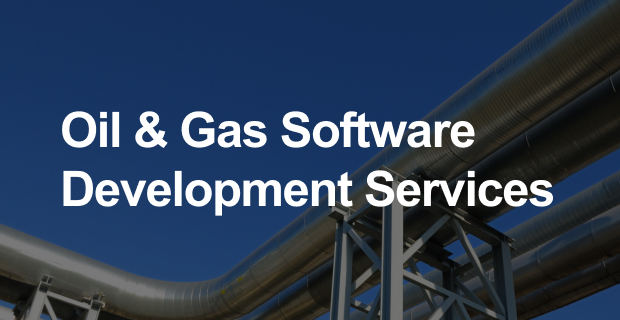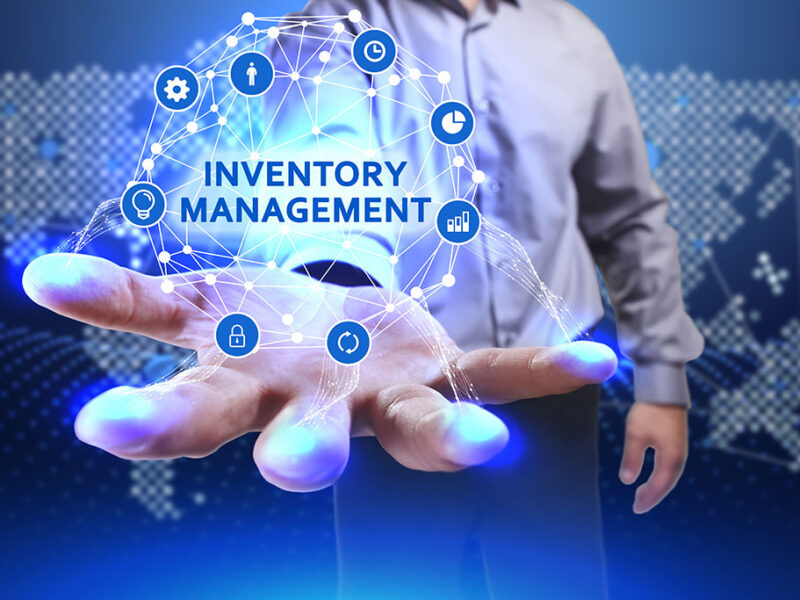As the global energy landscape evolves and the push for digital transformation intensifies, the oil and gas sector is under increasing pressure to become more agile, data-driven, and efficient. In this era of Industry 4.0, technology is no longer optional—it’s a necessity. For companies based in Dubai and across the GCC, adopting a robust, forward-thinking tech stack is critical to staying competitive and achieving sustainable growth.
In 2025, the oil and gas industry is seeing a shift from legacy systems to modern integrated solutions that leverage cloud computing, artificial intelligence, IoT, big data analytics, and blockchain. These tools not only optimize operations but also ensure safety, reduce downtime, and enhance compliance. The enablers behind these transformations are specialized service providers, especially an Oil and Gas Software Development Company that understands the unique challenges of this industry.
This comprehensive guide explores the ultimate tech stack for oil and gas companies in 2025—with a focus on the Dubai market. Whether you are an upstream explorer, midstream transporter, or downstream refiner, understanding and deploying the right tech tools will be the foundation of future success.
The Role of Technology in Dubai’s Oil and Gas Sector
Dubai, part of the resource-rich United Arab Emirates, has been proactive in blending its oil wealth with advanced digital strategies. The government’s UAE Vision 2030 and Energy Strategy 2050 underscore digital transformation as a cornerstone for economic diversification and environmental sustainability.
Dubai’s oil and gas sector is evolving quickly. Firms operating in Jebel Ali Free Zone, Dubai Silicon Oasis, and offshore oil fields are investing in technologies that allow real-time decision-making, predictive maintenance, enhanced data visualization, and intelligent automation.
Partnering with a Dubai-based Oil and Gas Software Development Company allows these businesses to implement tech solutions that are compliant with UAE regulations, optimized for Gulf-region logistics, and tailored to Arabic-speaking teams and customers.
Core Challenges in the Oil and Gas Industry That Tech Can Solve
Before discussing the tech stack, it’s essential to understand the primary operational and strategic challenges oil and gas companies face:
- Data Silos across departments and assets
- Unplanned Downtime due to equipment failure
- Environmental Compliance and reporting challenges
- Supply Chain Inefficiencies
- Workforce Safety in remote or hazardous environments
- Aging Infrastructure
- High Operating Costs
A well-designed technology stack, developed and implemented by an experienced Oil and Gas Software Development Company, can address each of these challenges with precision.
Top Technologies Defining the Oil & Gas Tech Stack in 2025
1. Cloud Computing
Cloud platforms are the backbone of digital transformation. They offer scalable infrastructure, real-time collaboration, and secure data storage.
Key Benefits:
- Remote access to mission-critical systems
- Real-time synchronization across global sites
- Reduced CAPEX through pay-as-you-go models
Popular Solutions:
Microsoft Azure for Energy, AWS Oil & Gas, Oracle Cloud Infrastructure
2. Internet of Things (IoT)
IoT devices are redefining equipment monitoring, pipeline tracking, and asset management.
Use Cases in Oil & Gas:
- Sensor-based monitoring of drilling rigs
- Smart pipelines that report leaks or pressure fluctuations
- Predictive analytics for rotating equipment
IoT integration must be secure, real-time, and compatible with rugged conditions—skills that an Oil and Gas Software Development Company brings to the table.
3. Artificial Intelligence and Machine Learning
AI is not just about automation—it’s about creating a smarter oilfield. ML algorithms process massive volumes of geological and sensor data to optimize decision-making.
AI Applications in Oil & Gas:
- Predictive maintenance of equipment
- Reservoir modeling and simulation
- Demand forecasting
- Real-time risk assessment
Companies in Dubai benefit from AI frameworks localized to their regulatory environments and operational styles, a capability that top-tier software development firms provide.
4. Big Data and Analytics
Big data tools process structured and unstructured datasets from sensors, ERP systems, and field reports.
Key Capabilities:
- Operational KPIs visualization
- Advanced dashboards for pipeline monitoring
- Trend forecasting for supply and demand
- Environmental impact reporting
Platforms to Consider:
Apache Hadoop, Spark, Power BI, Tableau, Snowflake
5. Blockchain Technology
Blockchain provides immutable record-keeping, particularly useful in complex supply chains and regulatory audits.
Applications:
- Smart contracts for suppliers and vendors
- Equipment usage tracking
- Automated compliance with environmental laws
Blockchain is still emerging in the oil and gas sector but is increasingly being piloted by forward-thinking firms in Dubai.
6. Geographic Information Systems (GIS)
GIS provides spatial analytics that assist in exploration, resource planning, and field mapping.
Benefits:
- Enhanced site selection for drilling
- Real-time visualization of field operations
- Improved emergency response logistics
When integrated with IoT and AI, GIS transforms raw location data into actionable insight.
7. ERP Systems for Oil and Gas
An industry-specific Enterprise Resource Planning (ERP) system ties everything together—finance, procurement, HR, and operations.
Notable Features:
- Drill-down reporting for cost centers
- Budget planning and forecasting
- Regulatory compliance modules
- HR onboarding for field workers
Dubai-based developers often integrate custom modules that comply with UAE tax and labor laws.
Custom vs. Off-the-Shelf Solutions: What’s Right for You?
Off-the-shelf software may appear cost-effective but often lacks industry-specific features or customization. On the other hand, custom-built applications developed by a specialized Oil and Gas Software Development Company offer:
- Tailored user experiences
- Seamless integration with existing infrastructure
- Enhanced data security
- Scalable architecture for future growth
For Dubai-based oil and gas firms, custom software also ensures compliance with local laws, support for Arabic language, and cultural relevance.
Why Dubai Needs Specialized Oil and Gas Software Development Companies
Dubai’s business ecosystem is fast-paced and technologically advanced. The energy sector, though traditional in many aspects, is adapting to these dynamics. Here’s why working with a local Oil and Gas Software Development Company is crucial:
- In-depth understanding of local operational challenges
- Quick on-site support and training
- Compliance with UAE cybersecurity and data protection laws
- Cost-effective solutions tailored to the Middle East market
- Faster deployment and project turnaround
Additionally, these companies can offer hybrid teams with global exposure and regional relevance—crucial for international firms with Dubai operations.
Implementing the Tech Stack: A Step-by-Step Roadmap
- Digital Audit
Assess current IT infrastructure, assets, and pain points. - Strategy Formulation
Define goals (e.g., reduce downtime, increase yield, improve safety). - Partner Selection
Choose a Dubai-based Oil and Gas Software Development Company with proven expertise. - Pilot Program
Test key components like AI monitoring or IoT tracking in a limited environment. - Full-Scale Rollout
Deploy across departments/sites with employee training and change management. - Performance Monitoring
Use analytics to measure ROI and optimize continually.
Also Read: Drilling into the future with Artificial Intelligence in Oil and Gas Industry
FAQs About Oil and Gas Tech Stack in 2025
1. What is the best way to start digital transformation in the oil and gas sector?
Begin with a digital maturity assessment. Engage a specialized Oil and Gas Software Development Company to identify the low-hanging fruits for automation, such as IoT-based asset monitoring or cloud migration of legacy systems.
2. Are there cybersecurity risks with implementing cloud and IoT in oil and gas operations?
Yes, but these risks can be mitigated with secure cloud architecture, encryption protocols, access control, and ongoing threat monitoring. Working with a Dubai-based software firm ensures compliance with UAE’s cybersecurity standards.
3. How can AI improve productivity in the oil and gas sector?
AI can predict equipment failures, optimize drilling parameters, streamline logistics, and analyze seismic data faster than traditional models—boosting efficiency and reducing manual errors.
4. What are the cost implications of implementing a modern tech stack?
While the upfront investment may be significant, long-term savings from reduced downtime, improved safety, and operational efficiencies justify the expense. Many providers offer flexible pricing or phased rollouts to control costs.
5. Can smaller oil and gas firms in Dubai benefit from this tech stack?
Absolutely. Scalable and modular solutions mean even mid-sized or niche players can integrate cloud, AI, and analytics without overhauling their entire IT infrastructure.
Conclusion: Investing in the Right Tech Stack is No Longer Optional
The oil and gas industry is in the midst of a digital revolution, and nowhere is this more evident than in Dubai—a city poised to become a global tech and energy innovation hub. The ultimate tech stack for oil and gas companies in 2025 is not a luxury; it’s a strategic imperative.
From cloud platforms and IoT devices to AI-driven analytics and blockchain-based security, technology enables energy companies to reduce risk, improve output, and enhance sustainability.
Partnering with a specialized Oil and Gas Software Development Company ensures that this tech stack is not only implemented effectively but also customized to your operational needs and regulatory environment.
The future of energy is smart, agile, and data-driven—and the companies that adopt these technologies now will be the industry leaders of tomorrow.
If your business is ready to take the next step in digital transformation, the time to act is now.



